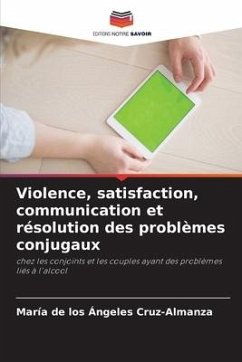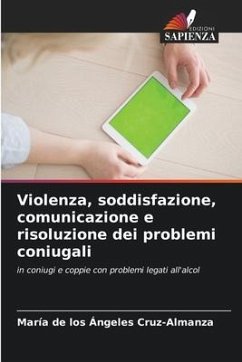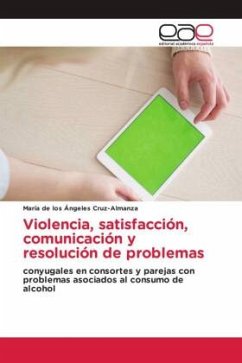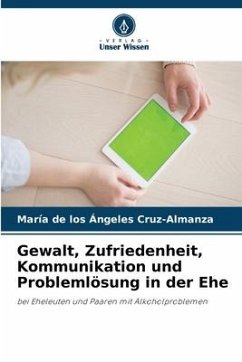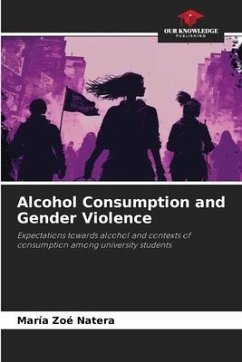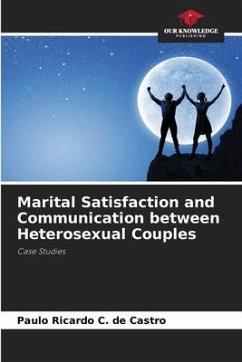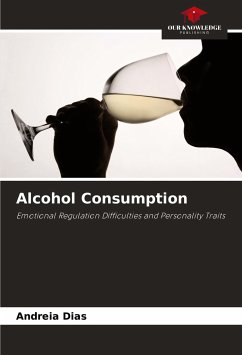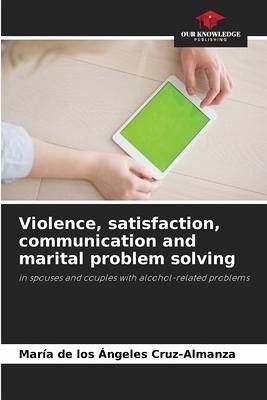
Violence, satisfaction, communication and marital problem solving
in spouses and couples with alcohol-related problems
Versandkostenfrei!
Versandfertig in 6-10 Tagen
40,99 €
inkl. MwSt.

PAYBACK Punkte
20 °P sammeln!
Echeburúa (2001), published results of cognitive-behavioral treatment to cope with chronic Posttraumatic Stress Disorder in victims of domestic abuse. Special attention was paid to research on the approach through the application of cognitive-behavioral therapy in the treatment of maltreatment.A tendency to decrease communication was observed when the partner attends the intervention alone and in the same way when the subject of violence in the relationship is treated when they participate as a couple.A couple relationship with manipulation, threats, inflexibility, dominance, subordination, v...
Echeburúa (2001), published results of cognitive-behavioral treatment to cope with chronic Posttraumatic Stress Disorder in victims of domestic abuse. Special attention was paid to research on the approach through the application of cognitive-behavioral therapy in the treatment of maltreatment.A tendency to decrease communication was observed when the partner attends the intervention alone and in the same way when the subject of violence in the relationship is treated when they participate as a couple.A couple relationship with manipulation, threats, inflexibility, dominance, subordination, verbal degradation was observed.The wives reported at the time of requesting help the alcohol consumption of their partners in 73.3%. According to Heise (1998) in Glantz, Martinez, Tinoco (2004), 52.4% described their partner's drinking habits as alcoholic, thus confirming that alcohol consumption becomes an obstacle to the quality of the couple's relationship.



